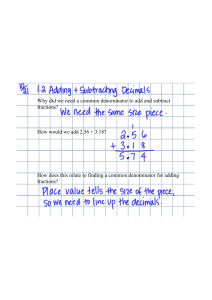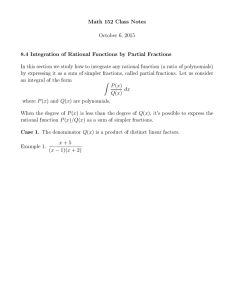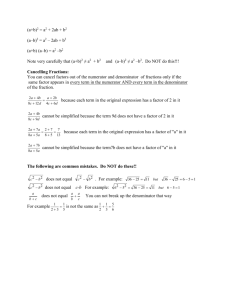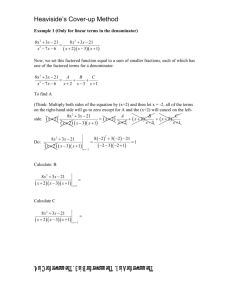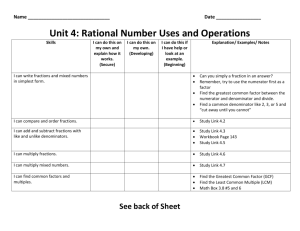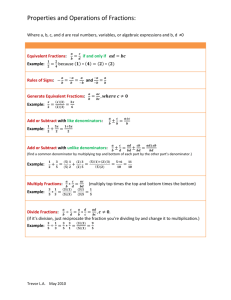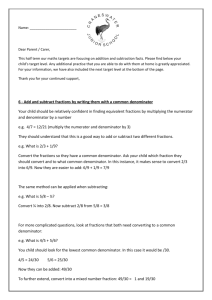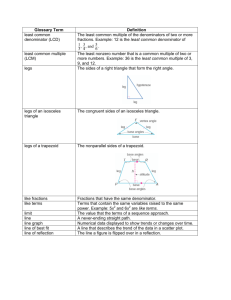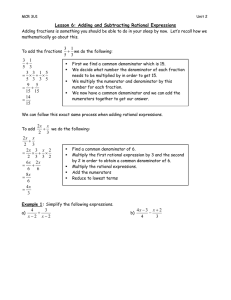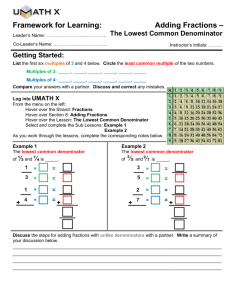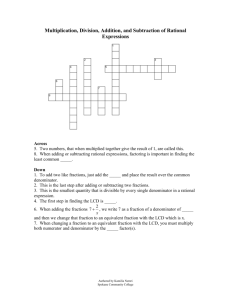I. Reducing an Improper Fraction (long division) + = + C a x a ax dx
advertisement
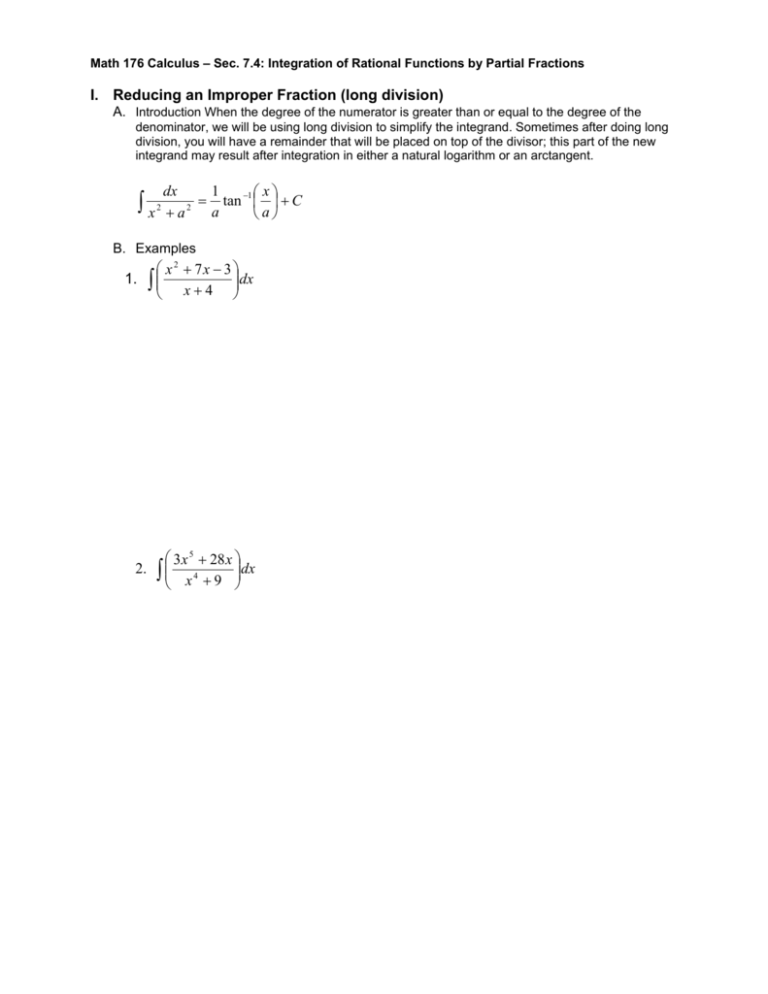
Math 176 Calculus – Sec. 7.4: Integration of Rational Functions by Partial Fractions I. Reducing an Improper Fraction (long division) A. Introduction When the degree of the numerator is greater than or equal to the degree of the denominator, we will be using long division to simplify the integrand. Sometimes after doing long division, you will have a remainder that will be placed on top of the divisor; this part of the new integrand may result after integration in either a natural logarithm or an arctangent. ∫x 2 dx 1 ⎛ x⎞ = tan −1 ⎜ ⎟ + C 2 a +a ⎝a⎠ B. Examples 1. 2. ⎛ x2 + 7x − 3 ⎞ ∫ ⎜⎜⎝ x + 4 ⎟⎟⎠dx ⎛ 3 x 5 + 28 x ⎞ ∫ ⎜⎜⎝ x 4 + 9 ⎟⎟⎠dx 4x 2 − 7 dx 3. ∫ 2x + 3 −1 3 II. Partial Fractions A. Introduction Partial Fractions consists of decomposing a rational function into simpler component fractions and then evaluating the integral term by term. B. Denominator is a Product of Distinct Linear Factors ∫x 2 3x + 7 dx + 6x + 5 C. Denominator is a Product of Linear Factors, Some of Which are Repeated ∫ 3x 2 − 8x + 13 ( x + 3)( x − 1) 2 dx D. Denominator Contains Irreducible Quadratic Factors, None of Which is Repeated 2x 2 + x − 8 ∫ x 3 + 4x dx I I I . Rationalizing Substitutions Some nonrational functions can be changed into rational functions by means of appropriate substitutions. x ∫ x −4 IV. dx Additional Examples Evaluate the following: 1. ∫x 2 2x + 1 dx + 2x − 3 2. 3. ∫( x 2 - x − 21 dx x 2 + 4 (2x − 1) ) 4x 2 + 3x + 6 ∫ x 2 x 2 + 3 dx ( ) ey 4. ∫ 5. ∫ (1 + e ) 6. 16 − e2 y dy dx x ∫( e2t dt et − 2 ) 7. ∫ x 2 + x + 1 dx
